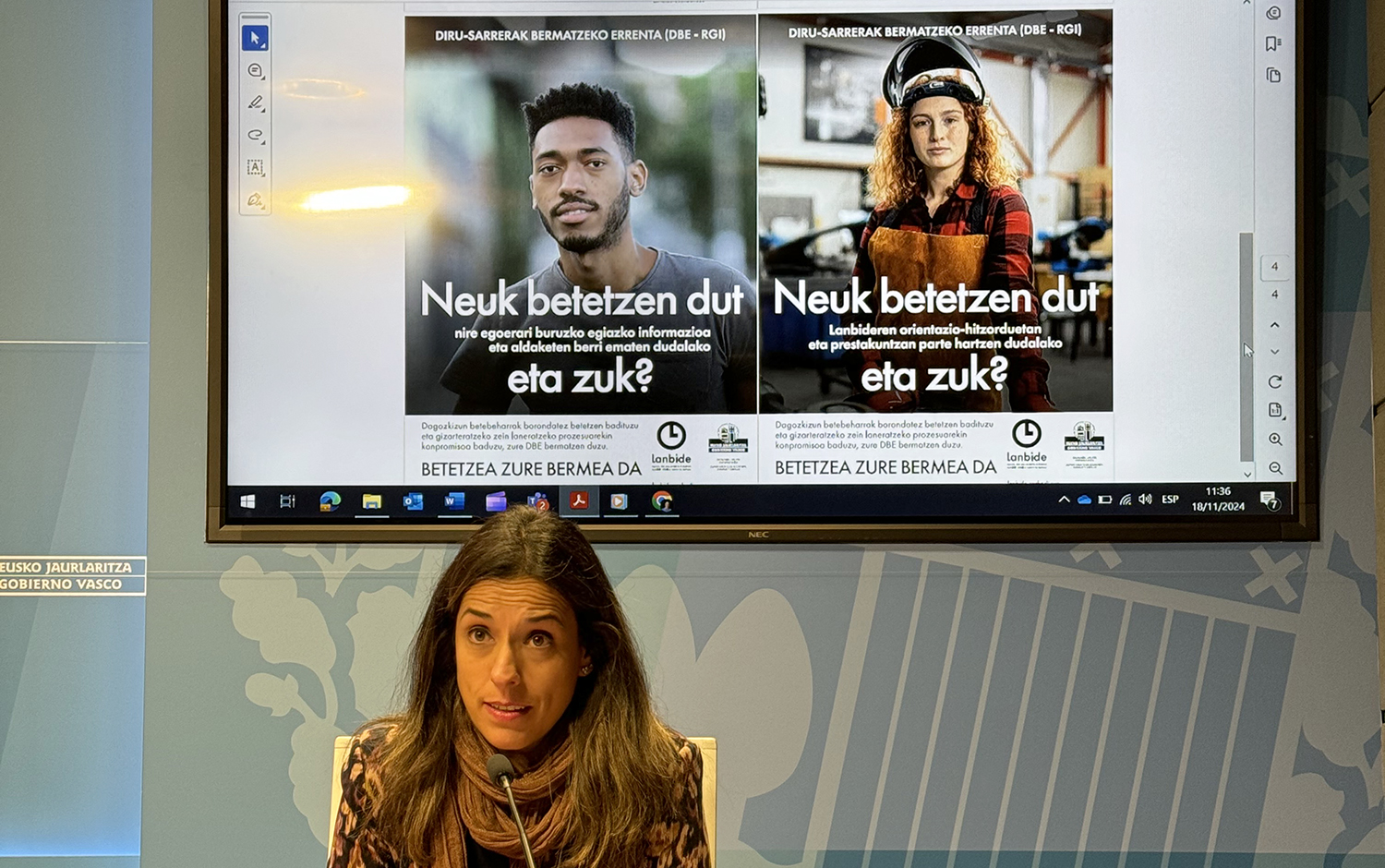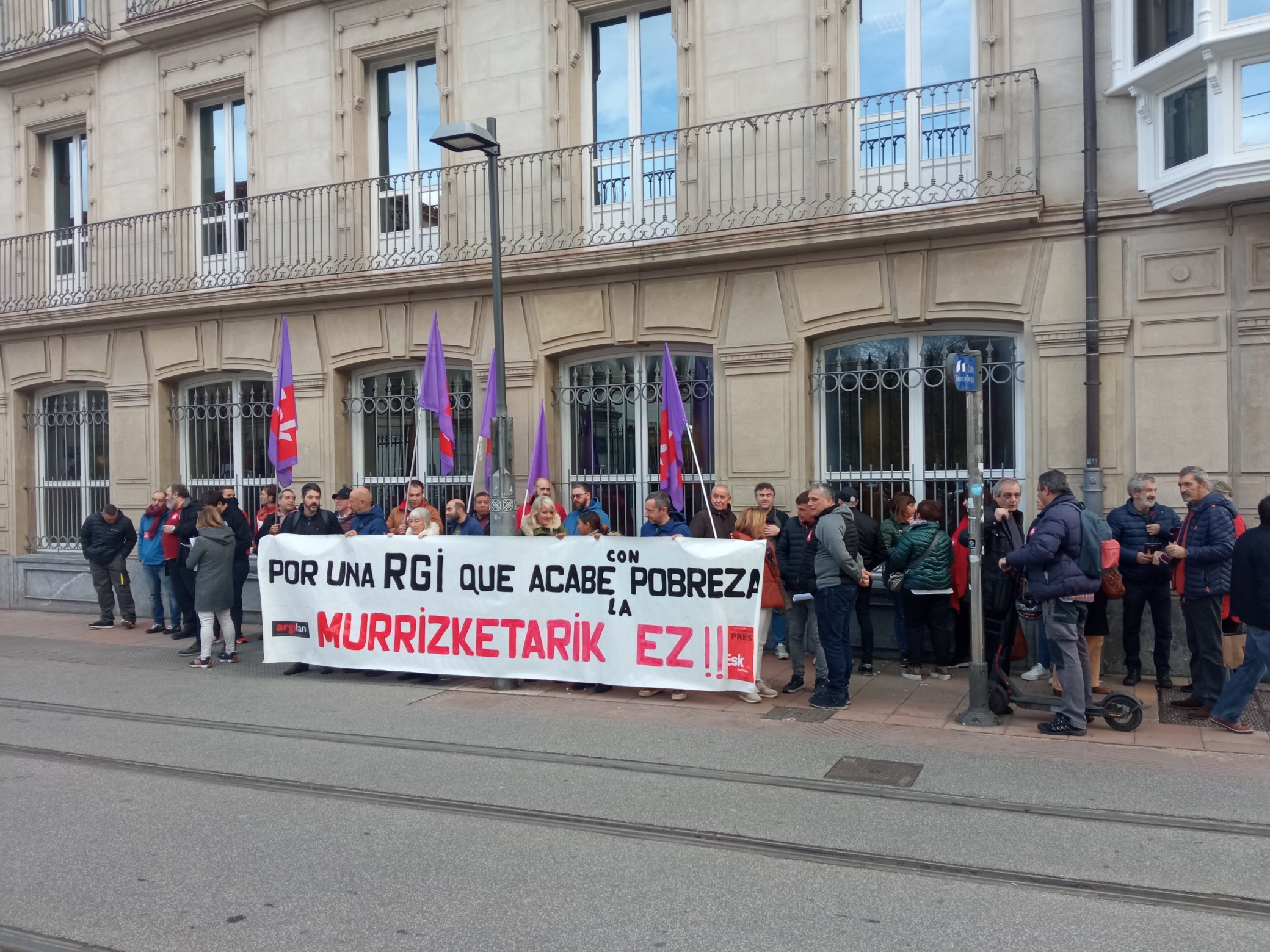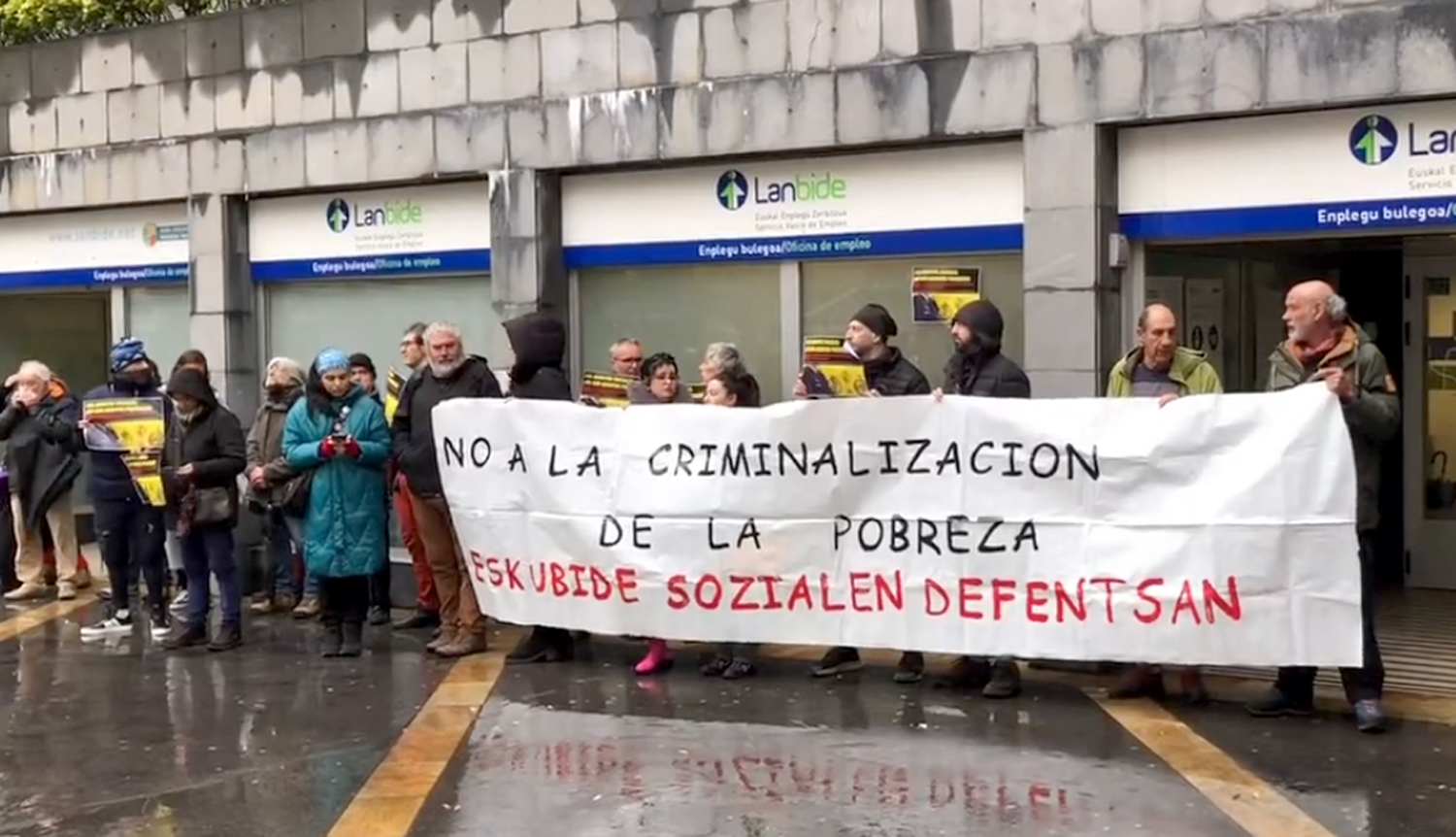Improvements and criticisms of the new Government Approved Income Guarantee Act
- The Government has adopted the draft Law on the Basque System of Income Guarantee and Social Inclusion, which is expected to be adopted in Parliament by the end of this year. The Government says that the new law will cover more people and each recipient of the benefit will receive more money. LAB argues that "the system is not a success" and that the amount of benefits should be equated to the minimum wage. The public initiative Unconditional Basic Income, which closed its door in Parliament a week ago, has confirmed that "the historic opportunity has been lost".

On 10 May, the Governing Council approved the Bill of the Basque System of Income Guarantee and Social Inclusion (here is the news of the Government, where you can see the full Bill). This law has harmonised Income Guarantee Income (IGR) and Minimum Living Income (BGDS). It is now going to make the way in Parliament, where it is debated and expected to be adopted at Christmas, where the PNV and the PSOE have an absolute majority. The Act provides for its entry into force six months after its publication in the Official Gazette.
The Government notes that the new law will improve coverage: "Improvement in all vulnerable situations. Up to 40% (increase) for families with children and up to 17% for pensioners. It offers better coverage in cases of battered or exploited women, people with disabilities, refugees, victims of terrorism who are forced to flee and want to return." The amount to be collected will be updated annually on the basis of the CPI and budgets, based on the minimum income of residence (EUR 491,63 based on this year), and then each person will receive the allowances on the basis of their characteristics and conditions.
Currently, private individuals receive a maximum of EUR 727 and couples EUR 934, compared to EUR 737,45 from the new law and EUR 983,26 from the new law. Families receive a maximum of EUR 1,033 per day and with the new law they will receive EUR 1,425,72.
In the case of pensioners, single pensioners currently receive EUR 835 and with the new law EUR 934.1, and if one of the spouses is a pensioner, they charge EUR 1,043 per day and EUR 1,179 at the entry into force of the new law.
Amended conditions
In the case of families with children, the law contains concrete changes: to reduce the registration period to access the benefit in more than three years and to lose some of the aid instead of losing it in its entirety, in order to protect children. In addition, in the case of separated couples, the supplementary allowance shall be paid equally for the fact that they have a child. And people declared "victims of terrorism", refugees and victims of male violence will not have a period of registration, just be registered.
Those who live in the same house without family relationship will be able to access the benefit, applying a reducing coefficient.
In addition, the government says that the new law will simplify and streamline the management of economic benefits, "with greater legal certainty and better identification and control instruments". According to the new law, income would start to be collected in a month. However, once reception has started, the consequences of non-compliance with the conditions will be more severe, for example in the event of a refusal of a job offer.
LAB: Registration for the benefit must be extended to a maximum period of one year.
LAB says the starting point for this preliminary draft is "wrong": "Idoia Mendia tells us about the "success" of the current system and LAB considers that the diagnosis is quite the opposite. Our current system of protection in the CAPV does not address the current situations of poverty and social precariousness. It's a failed model, like a system that cronizes the current situation. The IGR has been a benefit that, based on the assistentialist model, has been reduced as a right, year after year, reducing the quantity and tightening the conditions of access. As if this were not enough, we have had to increase the control measures of receivers and live continuous criminalization campaigns."
LAB recalls that 52.6% of benefit recipients do not leave the poverty situation and that 31% of the population in poverty does not receive any benefit, according to data from the 2020 Poverty and Social Inequalities Survey.
LAB proposes the following concrete measures to strengthen the protection system: "These benefits shall be equated to the minimum inter-professional wage. In the case of housing sharing, the total amount of the benefit should be received by each person requesting it and the registration requirement should be extended to a maximum of one year."
The Unconditional Basic Income Popular Legislative Initiative: "The Basque Parliament has lost its historic opportunity"
On 5 May, PNV, PSE, PP and Vox closed the People's Legislative Initiative on Unconditional Basic Income in Parliament.
This was expressed by Itziar Gerendain, on behalf of the promoters, in the Basque Parliament: "The PNV and the PSE, together with the PP and the VOX, have shown no commitment to citizen participation in more democratic governance, and have shown that the fight against poverty and inequality is not among the priorities. In the face of these aspects, the objective of putting life at the centre is just a slogan. But if there is one thing that concerns us from a democratic perspective about what a parliament has to be, that puts us in the hands of those who have provided 22,075 support, it is the contempt that a majority of this Parliament is denying a PL, without making any arguments to justify it."
I have always found the way in Spanish to the carriages that can be found here and there: humiliating. Isn't it a pretty light, white name or doesn't it have any connotation? After all, everything that was going on there had to be humiliated. It is known that for the god of... [+]
LANBIDE has launched an anti-fraud campaign in Income Guarantee Income and has created an anonymous whistleblower. Responding to the criticisms received, he said that this mailbox was merely an instrument for ordering complaints and notifications. It does not promote class... [+]
In the Basque Parliament, the legislative amendment to the Basque System for Inclusion and Income Guarantee has advanced. We need to look at the debate on the law, the agreements on the left and the right to amend it, and at the limited impact that the reforms brought about by... [+]
Bizitzeko Gutxieneko Diru-sarrera onartu du Espainiako Gobernuak, EAEn eta Nafarroan lehendik ere daude DSBE eta Errenta Bermatua zeuden. Hala ere, milaka dir halako errentarik gabe geratuko direnak, desberdintasun sozialak maila asko baititu: generoan, nazionalitatean,... [+]






















